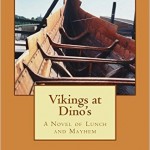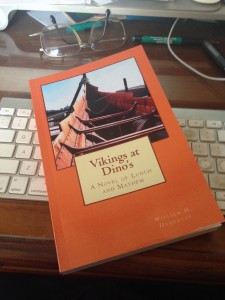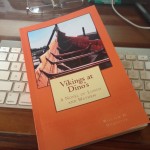Of a time and of a time there was a sword smith, renowned throughout the land; and that no mean backwater, but the land of the Great Sultan, for the smith dwelt in Damascus, city of steel. His blades were the equal of any in the land, for he knew well that to craft a blade both strong and durable it must be heated to white heat—and then quenched in the body of a fat slave. He had mastered this skill long since, yet he yearned for more: he yearned to produce a blade of legend, and to present it to the Sultan, and so be renowned throughout the world as the greatest sword smith that had ever been or ever would be. And so he thought long and carefully.
And when his time of thinking was complete he took a sword newly forged, his finest work, complete but for the final quenching. And he bought a camel, and lade it with his needful things, and joined a caravan of hajjis on their way to the Holy City. The sword he wrapped carefully in silk, and hid among his belongings, and his face he covered; and so the days passed.
And far into the desert, yet still far from the City of the Kaaba, he turned aside in the night; and by a remote oasis built a fire and made a sacrifice and called upon the King of All Djinni to come to his aid: for he knew he had reached the peak of merely human dexterity and skill. While he awaited the coming of the King of All Djinni he unpacked his needful things: a portable forge, and charcoal to feed it, and a bellows, and the sword, which was carefully wrapped in silk for it was not yet quenched. And he put on his great gauntlets and heated the sword to white heat; and at dawn there was a wind, and a cloud of sand, and a great voice, and lo it was the King of All Djinni.
“Why have you summoned me, Son of Adam?” quoth the Djinn. “And why should I not kill you now for your temerity?”
The sword smith bowed low, lower than he ever bowed for his prayers, and then rising to his feet he said, “O Great Djinn, King of All Djinni, I am a sword smith, and reckoned the equal of any such in all of the lands of the Great Sultan; which is to say of any in the world. And yet I aspire to more. Should you help me in this, I shall be ever grateful, and never fail to give you credit for the excellence of this blade you see before you.” And he drew the sword from the forge, holding the hilt in his great gauntlets.
The cloud of sand subsided, and the King of all Djinni drew nearer to inspect the blade, which was burning the color of the whitest cloth.
“Indeed you have skill,” said the Djinn after a time. “It pleases me to assist you. I shall lay a great spell upon this blade”—but what the spell would have been, none ever knew. For taking the sword, the sword which was still at a white heat, the smith drove it in a flash into the body of the King of all Djinni, sliding it between the seventh and eight ribs and through the heart Djinn’s ruby heart, which (as all the world knows) is there placed. For a smith must always strike when the fire is hot.
And the Djinn, his heart pierced, perished swiftly, quenching the sword.
And taking the sword and the Djinn’s crown as proof, but leaving the forge, the smith mounted his camel and rode swiftly to Baghdad, city of the Great Sultan, and presented them to him as he had long desired.
The blade was indeed everything for which the smith had yearned, and the Sultan received it and its story with delight, taking it for his very own; and indeed it is still the very sword of the Sultan, passed down from that day to this. And the smith’s deed resounded throughout the lands of the Sultan, and all remembered the name of the one bold and brash enough to quench a white hot blade in the flesh of the King of All Djinni—for though saddened to so reward such a craftsman and such a kingly gift, the Sultan necessarily had him put to death as a regicide, and his fate published to the farthest end of his domains.










